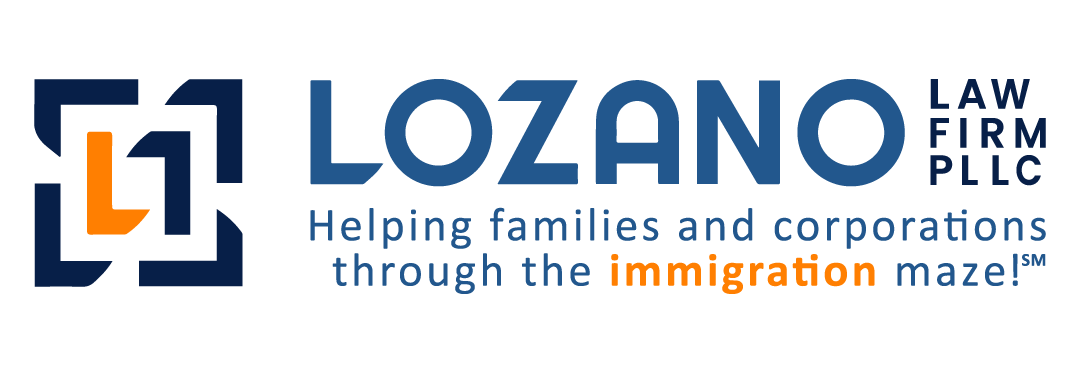Transitioning from having an immigrant Visa to having a Green Card can be complex. It necessitates the knowledge of an Adjustment of Status lawyer. They streamline the path, ensuring accurate documentation and compliance with immigration laws.
The journey involves two primary pathways: family petition and employment-based. The first one caters to immediate relatives and preference categories, while the latter is for individuals with specific work qualifications and skills.
Read on to explore the crucial role of a lawyer in transitioning to a permanent residency. Gain insights into the essential steps for a successful Green Card application.

Work With An Adjustment Of Status Lawyer
Adjustment of Status allows those with non-immigrant Visas to apply for permanent residency without leaving the country. With this, a Visa lawyer is essential for ensuring compliance with immigration laws and adept handling of potential challenges. They make the path to permanent residency more manageable, increasing the likelihood of a successful outcome.
By guiding applicants through the required paperwork, skilled lawyers raise the chances of a successful Adjustment of Status application. They ultimately make the journey to permanent residency less stressful for those seeking a long-term life in the United States.
Experienced lawyers can help you navigate the intricacies confidently. Whether you are holding a Visa based on a family petition or employment, they can assist you in achieving your Green Card goal.
Family-Based Visa
A family-based petition is for individuals with familial affiliations with U.S. citizens or permanent residents. Different categories belong to this immigration pathway, each with its criteria and waiting times.
Immediate Relatives
Being an immediate relative of a U.S. citizen provides a more streamlined path to permanent residency. This category includes spouses, unmarried children under 21 years of age, and parents of U.S. citizens.
Family-Based Preference Categories
You fall under this category if you are a sibling, married or unmarried child (below 21) of a U.S. citizen. Lawful permanent residents can petition for their spouse and unmarried sons or daughters over 21.
Fiancé Green Card
The K-1 Visa is a non-immigrant Visa issued by the United States government. Its primary objective is to bring together U.S. citizens and their foreign fiancés for marriage. The U.S. citizen petitioner must have met their foreign partner in person within the last two years. They must genuinely commit to marrying within 90 days of the foreign fiancé arriving in the United States. After this joyous union, the foreign spouse can apply for a Green Card.
In addition to family petitions, employment provides an alternative route to lawful permanent residence. If you lack family ties in the United States, you can pursue this pathway through sponsorship by your U.S. citizen employer.
Employment-Based Visa
Employment-based immigration caters to individuals with specialized qualifications and skills contributing to the U.S. economy. Additionally, this category extends to entrepreneurs and investors who make substantial financial investments in the United States.
Immigrant Workers
Immigration preferences in the United States categorize potential workers based on qualifications and job roles. First preference includes those with exceptional abilities, professors, researchers, or multinational managers.
The second preference comprises those with advanced degrees, outstanding abilities, or a national interest waiver. Meanwhile, the third preference includes skilled workers and professionals needing a U.S. bachelor’s degree. It also includes unskilled workers with less than two years of experience.
Physician National Interest Waiver
Physicians committed to full-time clinical practice in underserved areas are vital in addressing healthcare inequalities across the United States. They deliver indispensable medical care to communities facing insufficient access to healthcare, contributing to local economies and community welfare.
Immigrant Investor
An employment-based Visa involves the EB-5 program in which foreign investors can become U.S. permanent residents through substantial investments. They require a minimum of $1,050,000 for a new commercial enterprise. If invested in a targeted employment area (TEA) or rural area, the minimum is reduced to $800,000.
It is easier to navigate the complexities of employment-based Visas if you know these categories. Consequently, gaining insight into the vital steps required for applying for permanent residency becomes equally essential.
Apply For Permanent Residency
If you are already in the United States and hold an immigrant Visa, you can apply for permanent residency in the country through Adjustment of Status. Here are the steps you need to follow in applying for a Green Card.
Determine Your Green Card Eligibility
The initial step in the Green Card application process is determining your eligibility, a crucial task for which the skills of an immigration lawyer are indispensable. With their guidance, you can navigate the complexities of identifying the specific type of immigrant Visa you hold. You can also receive tailored advice on the subsequent steps in the application journey.
Immigrant Petition
Someone must petition for you. For family-based sponsorship, a U.S. citizen or permanent resident family member must file Form I-130 or Petition for Alien Relative for you. The petitioner must establish the qualifying relationship with the beneficiary, such as spouse, child, or parent.
Meanwhile, employers can also do that for you, but they must obtain a labor certification from the Department of Labor before filing an immigrant petition. They must file the Form I-140 or Immigrant Petition for Alien Worker on your behalf.
USCIS Approval
Once your petitioner filed the necessary forms, the U.S. Citizenship and Immigration Services (USCIS) reviews the application. They forward it to the National Visa Center (NVC) if approved.
Visa Availability
Family-sponsored preference categories have numerical limits, so the petitioner and beneficiary must wait for a Visa to become available. Similarly, employment-based Green Cards are not exempt from such constraints. The wait time varies based on the relationship and the country of origin.
Green Card Application
When a Visa becomes available, the beneficiary can apply for it and then apply for a Green Card by filing Form I-485. It is also called the Application to Register Permanent Residence or Adjust Status.
Biometrics Appointment
USCIS schedules biometrics appointments to collect fingerprints, photos, and signatures. It is crucial for identity verification and application accuracy in the immigration process.
Attend An Interview
Certain permanent residency applicants may be obligated to undergo a comprehensive interview. This serves as a crucial element in evaluating and determining the eligibility of the applicants. It allows immigration authorities to gather additional information and assess the applicant’s suitability.
Wait For The Decision
The USCIS evaluates the Green Card application and subsequently renders a decision. In the event of approval, the applicant attains the esteemed status of a lawful permanent resident.
Securing a Green Card for permanent residency is a laborious process. Yet, understanding the myriad benefits that come with holding one can make the entire endeavor immensely worthwhile.
Benefits Of Lawful Permanent Residency

Permanent residency allows you to establish your home in the United States. It provides the benefit of indefinite residence, contingent upon maintaining immigration status, fostering stability, and a sense of belonging.
Permanent residency enables active participation in American society, building enduring connections and contributing to communities. This status brings security, eliminating uncertainties associated with temporary Visas. It allows long-term planning in education, career, and family.
As a permanent resident of the United States, you have the freedom to work without constraints on specific employers. You can choose jobs based on your qualifications and preferences, giving you flexibility in shaping your career path. Unlike temporary Visa holders, you are not restricted to a particular type of employment or employer.
This right to work as a permanent resident goes beyond a single job, allowing you to switch professions. You can adapt to market changes and respond to new opportunities. It empowers you to build a fulfilling and prosperous career based on your skills and aspirations. This flexibility enriches your professional life and aligns with the core values of your American dream.
As a permanent resident, you are entitled to the same legal protections as U.S. citizens. This includes protection under federal laws, state laws, and local regulations. You have the right to access legal remedies and seek protection under the law in case of any disputes or violations.
To fully enjoy this benefit, you must ensure you succeed in your Adjustment of Status process. The Lozano Law Firm can provide individualized assistance to help you achieve that goal. They are committed to providing you the legal guidance so you can deal with the intricacies more confidently.
Summary
Navigating the complexities of permanent residency in the United States necessitates collaboration with an immigration lawyer. They ensure accurate documentation and compliance with immigration laws, enhancing the likelihood of success.
Whether through family ties or employment qualifications, a lawyer guides applicants through the intricate process. The journey involves determining eligibility, filing petitions, USCIS approval, Visa availability, and the final Green Card application. If granted the Green Card, you can enjoy numerous benefits, including stability, career flexibility, and legal protections.


 Thank you for contacting us. Please complete this form and one of our team members will be in touch with you soon.
Thank you for contacting us. Please complete this form and one of our team members will be in touch with you soon.

